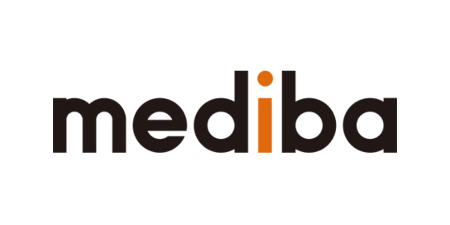
Client:mediba
Industry:Media and Entertainment
Region:Asia Pacific & Japan
mediba Uses UiPath AI Center to Manage Keywords on Popular Japanese Web Portal

50%
efficiency improved due to use of AI
2 months
time from AI conception to implementation
50% - 60%
keyword analysis accuracy with AI without systems training
Client Overview
mediba is one of Japan’s leading internet media companies, managing mobile and online services under the au brand.
mediba is one of Japan’s leading internet media companies, managing mobile and online services under the au brand. Part of their responsibilities is managing the company’s au brand Web Portal, which gets more than 7 million visits per day. Thanks to UiPath AI Center, mediba has been able to automate keyword filtering, saving au staff time and resources.
When you are responsible for one of Japan’s most popular online destinations, monitoring content is part of the job. Using humans is time-consuming, tedious, and subject to errors. That’s why mediba, the company that helps manage Japan’s au Web Portal, decided to adopt artificial intelligence from UiPath to help control displayed content. au Web Portal delivers web portal services for their customers.
mediba is part of the KDDI Group, offering business process outsourcing services and managing the KDDI Group’s au brand of products, including online and mobile media and advertising. Part of the KDDI’s responsibility is hosting the auone.jp website, which receives more than 7 million daily visitors looking for the latest in news, sports, and weather. In addition to real-time information, the au Web Portal maintains a list of the most-searched keywords, which is updated hourly. Part of mediba’s job is to monitor the list for inappropriate or offensive terms.
Managing the keyword feed 24 hours a day is a demanding task that requires three teams rotating in shifts. The work can be tedious, and it demands a level of training and skill which can make staffing challenging.
Checking for NG [not good or forbidden] keywords requires considerable know-how and skill, so it is not easy to find the best personnel.
Takashi Sato • BPM Unit Manager of the Technology Center for mediba
To address the problem, mediba decided to adopt UiPath AI Center to automate keyword checking.
Applying AI to Content Monitoring
Applying artificial intelligence seems to be the ideal solution for keyword monitoring. AI can be used to train bots to watch for offensive language or terms and call out suspicious phrases for manual checking. Since mediba had been working with UiPath robotic process automation (RPA) since 2018, it was logical to adopt UiPath AI Center for the task.
"There has been a growing momentum in the company to introduce advanced technologies such as AI. We were already finding practical applications for chatbots and automating internal operations using RPA," said Sato.
Incorporating AI Center into the web portal monitoring workflow was easier than anticipated. mediba adopted AI Center in March 2021. By May they had the proof of concept up and running, and by July it was in production.
We introduced UiPath RPA in October 2018, so we had a lot of trust in the company. [...] It was remarkable how easy it was to introduce AI Center. It was a huge benefit to be able to leverage AI without any deep knowledge and to have a pre-trained model so we could get up and running right away. UiPath support also was more than could have expected.
Satomi Ito • BPM Unit, Technology Center, mediba
Training AI to Filter Keyword Traffic
Using UiPath AI, mediba can check all the top-ranking keywords before displaying them on the au Web Portal. The system extracts Google keywords based on historical data from the search engine, then checks against various criteria. For example, if an individual name is linked to an incident or accident, or a search is linked to a photo with excessive skin exposure, the keyword is flagged NG and excluded until it can be checked.
By adding AI, monitoring efficiency is improved by 50%. AI is used to make an initial judgment of Google search terms and questionable keywords are manually reviewed before being accepted or rejected. As the system continues to filter keyword data, it trains the AI to improve accuracy and increase efficiency.
"Even in the test operation, we are improving the accuracy by training the AI,” said Sato. "We hope to get to the point where the system can do the check work using AI Center without human intervention.”
Realizing that there would be a learning curve, mediba set a goal of 50% to 60% accuracy to start with. Setting a goal of 100% accuracy would have caused unnecessary delays. The accuracy of the system continues to improve, so mediba has been able to cut the number of staff monitoring the au site by half.
In the future, mediba plans to expand its applications for AI to include operations support as well.
"We're considering using AI to check ads,” Sato said. “For advertisements on the au portal site you must strictly check whether the wording complies with, for example, the Pharmaceutical Affairs Act or the Premiums and Representations Act. AI Center should also be a very powerful tool to reduce the workload."
Related case studies
Ready for your own case study?
Speak to our team of knowledgeable experts and learn how you can benefit from agentic automation.






